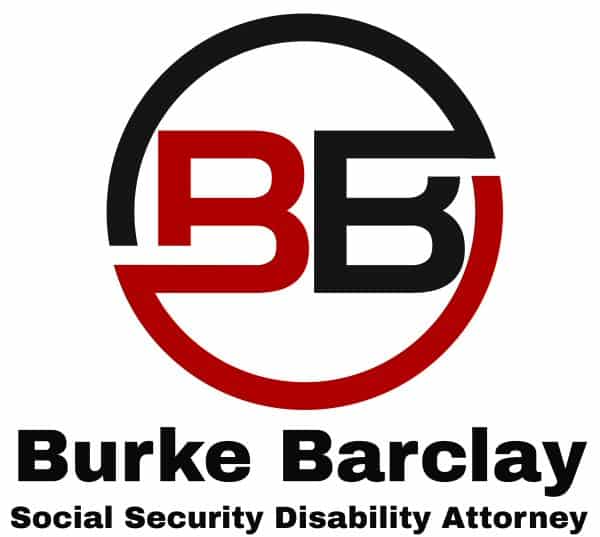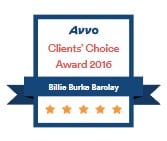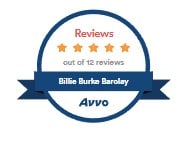Role Of The Vocational Expert in Your SSD Hearing
Understanding The Role Of The Vocational Expert in Your SSD Hearing.
If any of you have ever been to a Social Security disability hearing, the first time you realize there will be some other person testifying is when you receive notice that your hearing has been scheduled.
You may not even know or understand what role a Vocational Expert (VE) may play in helping the Administrative Law Judge (ALJ) decide whether or not you are disabled; but nonetheless, he or she will be present to give testimony as to what jobs would be available in the national economy despite your physical or mental limitations you believe keeps you from working.
To understand the role of the Vocational Expert, it is also important to understand what it truly means to be disabled. Thus, even though you may have physical or mental issues that you believe causes you not to be able to work, that is only half the story. In order for you to be disabled under Social Security’s rules, there must not be other jobs within the economy you are capable of performing. While this may sound simple, it becomes increasingly complex as the evaluation goes forward to decide whether or not you are disabled.
Through your testimony at your disability hearing, the ALJ is attempting to pinpoint exactly what limitations you have through your medical evidence and your answers given. After all questioning is complete, the ALJ will then turn to the VE and ask him or her questions concerning your limitations and if there would be jobs available. It is the role of the Vocational Expert to address these question as an expert.
While you do not have to understand the process completely, there are ways in which you can show you are disabled, despite the VE’s testimony that you can work at certain jobs. It is with this knowledge, you can better assert your inability to work at any job listed by the VE at your hearing.
I understand this is difficult to comprehend, especially if you have never been at a disability hearing before, but you do have the power to change the VE’s testimony that you are capable of working.
First, understand where the jobs the VE says you are capable of working are coming from. There is this thing called the Dictionary of Occupational Titles, or “D.O.T.” for short. Within the DOT is presumably a classification of every type of job within the United States. Just like Webster’s Dictionary attempts to define and classify words, the DOT does the same for jobs. You can find the DOT online just by using its keywords on any search engine.
Second, as the VE testifies as to what jobs would be available within the national economy, he or she will list their numbers, which you should pay attention to.
Here’s an example.
If the VE testifies that even with your limitations, you could be a housekeeper. He or she will state the DOT number of 323.687-014. If you type the name “housekeeper” and the DOT number into a search engine, it will give you a description of the job itself.
So, if the VE testifies that you are capable of performing that job or any other, ask him or her to read the description of the job. Listen closely as to the physical demands the job would require. What will happen next is usually the VE will give a cursory description of the job and its SVP rating (we’ll get to the SVP rating here in a minute).
Now, given just your physical limitations and what your medical records show, can you perform all of the duties listed? If you can ask the VE, for example, “Ms. Expert, you stated that one of the requirements for the job listed is that I would be required to do unlimited pushing or pulling, is that correct?” If you have limitations that keep you from pushing or pulling things, such as a shoulder impairment, then the job listed cannot be used to show that you would be able to do it despite your limitations.
I understand it is uncomfortable to essentially argue with a person that is supposed to be an expert, but understand there are no qualifications set forth by the Social Security Administration as to who can call themselves a Vocational Expert. Hearings are done in a very fast manner. There is pressure on the VE to come up with a job you would be capable of performing despite your physical or even mental limitations. So, if you have waited two years or more for your disability benefits, what do you have to lose to ask someone to explain in detail as to why he or she believes you can be a housekeeper, for example.
Now, after reading the requirements for any or all of the jobs listed you are capable of performing, look at the strength requirements listed for each job at the bottom of the job descriptions. Each job will always be classified as sedentary, light, medium, heavy, or extra heavy. Now, you need to know what exactly these strength requirements are.
For example, a job that is listed as medium requires: Lifting no more than 50 pounds at a time, with frequent lifting and carrying of objects weighing up to 25 pounds.
Again, this is important because your medical records and your testimony may show that there is absolutely no way you would be able to frequently lift 25 pounds throughout a given work day. So, this may be an area where you can show you would not be capable of performing such a job.
Now, you have to also look at the SVP ratings. The SVP ratings are called the “Specific Vocational Preparation” needed in order to satisfactorily complete any job described within the DOT.
Let’s turn back to the housekeeper scenario for a minute.
Within the SVP rating for a housekeeper, it states that there is an SVP rating of 2. This number is very important as we’ll see:
Within a 2 rating under the SVP for housekeeper, it means that you would be required to (1) apply commonsense understanding to detailed written or oral instructions, (2) you would have to add, subtract, multiply, and perform computations with decimals, ratio, rate, and percentages, (3) you would need a passive vocabulary of 5,000-6,000 words, and (4) you would have to be able to write compound sentences, using cursive style, with proper punctuation.
Can you do all these requirements? Well, you are going to have to listen closely as to what the ALJ stated your limitations involved. Here, for example, if you have been suffering from depression, you may not be able to follow detailed instructions. In fact, the ALJ may have given instructions to the VE, stating that you were capable of performing simple instructions.
Does this start to now make sense?
Therefore, if the VE stated that you were capable of being a housekeeper and the ALJ stated that you were capable of performing only with simple instructions, then the VE is going to have to adjust his or her testimony.
So, where does that take you now? Well, for starters, the VE is going to have to now list jobs with only an SVP rating of 1. First, you just decreased the amount of jobs available for you to do in the national economy. It just became harder for the VE to come up with jobs with only a rating of an SVP of 1.
Now, you return back to your original analysis of the jobs listed. If there are other jobs the VE says you can do with an SVP rating of 1, look at the job descriptions all over again. What are the physical requirements? Look back at your medical evidence and testimony at the hearing and see if your limitations would keep you from working any of these new jobs given.
Most people (including attorneys) stop when the VE states that there would be no jobs available within the national economy. But, that does not mean you won your case. Oftentimes, once the ALJ has time to review your medical records and reflect on your testimony, he or she believes you are capable of performing some other type of work even with your severe limitations.
The other reason as to why this is so important is that you are objecting to the evidence given by an expert at your hearing and you are laying the groundwork for more success if you decide to appeal a denial for benefits.
I know this is starting to get too long, but follow along one more time:
If, in your denial letter, there are jobs listed by the ALJ he or she believes you would be capable of performing even with your physical or mental limitations, you can argue this is not a correct reflection of your limitations clearly shown in your medical records or through your testimony.
For example, let’s return back to the housekeeper job. If the ALJ states in your denial letter that you are capable of performing this kind of work, you can argue that at your hearing, the ALJ stated that you could only perform jobs with simple and not detailed instructions. Now, you actually do have a basis for your appeal. Simply stating that the ALJ was incorrect in his or her determination of what jobs you could perform, will not be enough to convince the Appeals Council that your denial should be overturned and a new hearing should take place.
Lastly, if your case does have to go to the federal court level, the objection to the VE’s testimony is clearly shown at the hearing level. While such an objection is not necessary in order for a federal court to review your case, it gives a strong record from which the reviewing judge can pinpoint where and how your case was not decided correctly.
Just like anything else in life, you are going to have to sometimes fight for what you believe is right. You disability benefits should be no different. So now you know the role of the Vocational Expert with regard to your Social Security Disability Case hearing.
You Need an Experienced Social Security Disability Lawyer
We represent claimants fighting for their Social Security disability benefits throughout Texas and California. Contact the Law Office of Burke Barclay for a highly experienced Social Security Disability Lawyer in Dallas, Texas
"Experienced Social Security Disability Lawyer representing clients throughout the United States who either need to initially file for their Social Security disability benefits or have been denied at one of the various stages throughout the process to give them the best chances of success."
Business Address
3838 Oak Lawn Ave.
Suite 1000
Dallas, TX 75219
Business Phone
Business Hours
Monday - Friday
8:00 AM - 5:00 PM





